In January 2006, the New Orleans Musicians Hurricane Relief Fund and the New Orleans Social Aid and Pleasure Club Task Force hosted the All Star Second Line Parade. More than 30 clubs took part. Wearing shirts that said "ReNew Orleans," they led thousands of returned and displaced New Orleanians through the Sixth, Seventh and Eighth Wards, dancing and stepping for hours to the sounds of three brass bands.
The event ended in violence, however, when three bystanders were shot as the parade wound up near Zulu headquarters on Broad Street and Orleans Avenue. Days after the shooting, the New Orleans Police Department increased their fee for providing protection at second line parades by almost 400 percent, from $1,200 to $4,445. The idea behind this, said New Orleans Police Department Public Affairs Officer Juan Quinton, was to increase public safety.
"We're not trying to damage a culture, but the events were getting too large to where we could police them effectively. And these are not events where the city picks up the tab for what happens there."
The Norman Dixon, Sr., Annual Second Line Parade Fund, part of the New Orleans Jazz and Heritage Foundation, has traditionally paid the police fees for the city's social aid and pleasure clubs. Norman Dixon, Jr., administrator of the fund and President of the Young Men Olympian Social Aid and Pleasure club, says there is not enough money in his father's memorial fund to cover the new costs.
"At that price," Dixon said, "only two or three clubs would be able to afford to parade, instead of a second line almost every Sunday."
Members of the New Orleans Social Aid and Pleasure Club Task Force met with police representatives, including Superintendent Warren Riley, to work out a sliding scale of second line parade fees based on the size of each event. In February, task force leader Tamara Jackson said negotiations with the city "looked promising."
Then, another shooting happened on March 20. This time it was at a Central City funeral for a member of the Single Men's Social Aid and Pleasure Club. The fatal shooting of a 19-year-old man occurred despite the increased police protection. Jackson says the incident happened four blocks away from the parade, but still in sight of patrolling officers.
After the incident, the police once again set a standard fee for all second lines, this time at $3,760, which is where the price stands today.
Jackson and other club leaders say social aid and pleasure clubs should not bear the complete burden of violence that occurs around their events. They point to recent shootings at Mardi Gras, including a 2004 shooting at the Krewe of Muses parade, and say the police have not tried to deter those events with fee increases.
Police say this is because second lines are treated as private events in the eyes of the city, meaning police can set fees at their discretion. Mardi Gras parades — and other parades such at St. Patrick's and St. Joseph's Day parades — are governed and protected under a city parade ordinance.
The Social Aid and Pleasure Club Task Force says it is seeking a similar city ordinance for second line parades. Such an ordinance, they say, would protect them from the police increasing fees each time an incident occurs.
Street Talk sat down with three women from the New Orleans Social Aid and Pleasure Club Task Force to talk about how the new fees are affecting second line culture in the city. See the transcript in the next blog post.



















